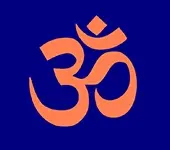Comments
Read more comments
Which Comes First, Night Or Day?
Nachiketas spent three days in Yamaloka without food. It was a dangerous situation. Yamadutas cautioned Yamaraja: taking care of a guest is not even by choice. If the unexpected guest goes back unattended, it spells disaster for the host. Yamaraja is aware of this.
Yamaraja wants to compensate for this dereliction. He tells the young boy Nachiketas:
'рддрд┐рд╕реНрд░реЛ рд░рд╛рддреНрд░реАрд░реНрдпрджрд╡рд╛рддреНрд╕реАрд░реНрдЧреГрд╣реЗ рдореЗ рд╜рдирд╢реНрдирдиреН рдмреНрд░рд╣реНрдордиреНрдирддрд┐рдерд┐рд░реНрдирдорд╕реНрдпрдГред рдирдорд╕реНрддреЗрд╜рд╕реНрддреБ рдмреНрд░рд╣реНрдордиреН рд╕реНрд╡рд╕реНрддрд┐ рдореЗрд╜рд╕реНрддреБ рддрд╕реНрдорд╛рддреНрдкреНрд░рддрд┐ рддреНрд░реАрдиреНрд╡рд░рд╛рдиреНрд╡реГрдгреАрд╖реНрд╡рее'
You stayed for three nights here at my home without food. I want to make up for that. Please ask for three boons from me. Otherwise, I will be doomed.
Why? We have seen this in the earlier episode. The guest is fire. Any guest is like fire. He needs to be taken care of, pacified. An unattended guest—even if he is the calmest and most peaceful person in the world—can burn down the house of the host, simply because the host is not doing his duty. You cannot afford to be careless with fire.
Yamaraja is scared now. He is trying to pacify Nachiketas. 'Namasyaha'—you deserve honor and respect. Twice he addresses Nachiketas as 'Brahman':
'рдмреНрд░рд╣реНрдордиреНрдирддрд┐рдерд┐рд░реНрдирдорд╕реНрдпрдГред рдирдорд╕реНрддреЗрд╜рд╕реНрддреБ рдмреНрд░рд╣реНрдордиреНрее'
Yamaraja is eager that Nachiketas should not feel offended. It is like saying, 'I am so sorry, I am so sorry,' repeating it again and again.
Here, there is an interesting point. Why does Yamaraja say that Nachiketas has spent three nights at his place, instead of saying three days? There are two reasons:
In the Vedic system, night comes first, then day. For a person who performs Agni Upasana, the evening homa comes before the morning homa. If someone is unable to perform it for some time—due to an impurity in the family, for instance—and then has to restart, they should not start with the morning homa; they should start with the evening homa. The first part is the evening homa, the second part is the morning homa. Thus, night holds more importance than day. In the same way, Krishna Paksha comes first, then Shukla Paksha. This is the Vedic system.
Another point is that Uttarayana is daytime for the Devas, while Dakshinayana is nighttime for the Devas. 'Dakshina' means south, which is the direction of Yama, who resides in the south. This is another reason night is significant for Yama.
This concept is seen throughout Vedic literature. When Shringi curses Raja Parikshit, he specifies that before the seventh night from now, Parikshit will be killed by Takshaka. The default is night, and the counting is by nights.
Knowledge Bank
Which yuga did Ramayana happen?
Ramayana happened in the 24th Treta yuga. We are presently in the 28th Kali yuga.
How did the exalted Sun in Aries influence Lord Rama?
The exalted Sun in Aries bestowed Lord Rama with unparalleled leadership qualities, a strong sense of duty, and righteousness, making him an exemplary king.
Recommended for you
Hasta Nakshatra Features

Everything you wanted to know about Hasta Nakshatra - Characteristics, career, health issues, marriage life........
Click here to know more..Mantra sadhana is not all that difficult

Shiva Panchakshara Nakshatramala Stotram

рд╢реНрд░реАрдорджрд╛рддреНрдордиреЗ рдЧреБрдгреИрдХрд╕рд┐рдиреНрдзрд╡реЗ рдирдордГ рд╢рд┐рд╡рд╛рдп рдзрд╛рдорд▓реЗрд╢рдзреВрддрдХреЛрдХрдмрдиреНрдзя┐╜....
Click here to know more..